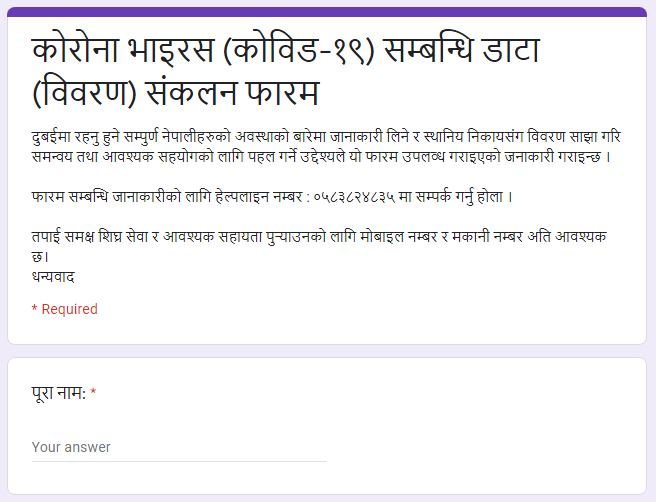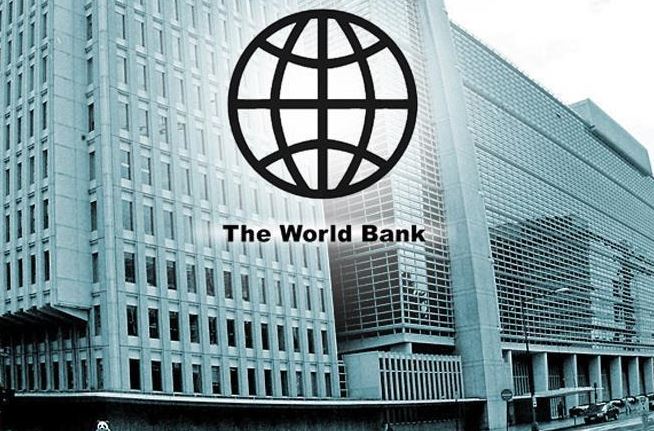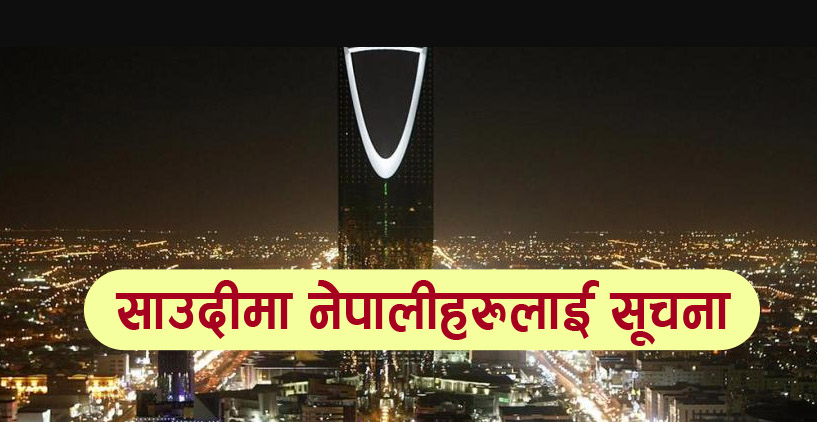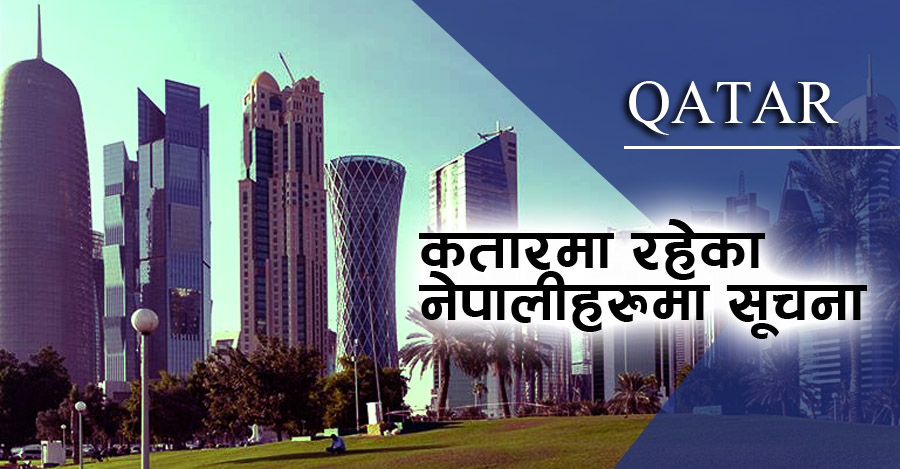Information to Nepalis living in UAE, request to fill the form
By: Anil Adhikari | 23 Apr, 2020
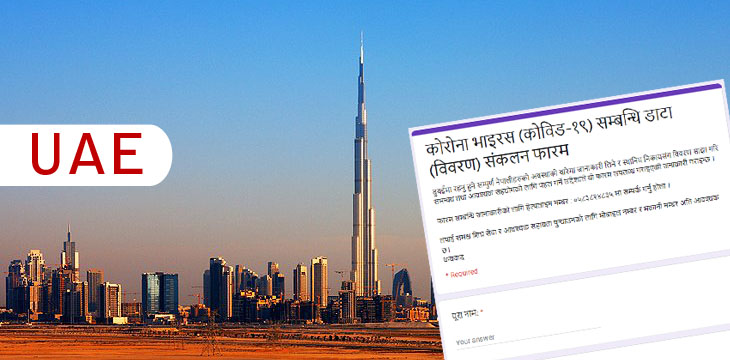
NRNA, NCC UAE has started this campaign in collaboration with Dubai Police to collect the details of health status of Nepalis living in Dubai Emirates of UAE and provide necessary assistance.
All Nepalis living in Dubai are kindly requested to help by filling out this online form. Also, if you need any information about Kovid-19, please contact the helpline number 052 382 4835 provided by Dubai Police.
click here for Form
Pasang Sherpa
Vice President, NRNA, NCC UAE
And
Convenor
Covid-19, QRF Team
Please share this important information with other Nepalis in the UAE.
World Bank warns pandemic could pressure food supply chain:
The coronavirus outbreak and government policies to limit the disease could disrupt food supply chains, potentially threatening food availability, even as prices remain stable in 2020, the World Bank cautioned Thursday.
Prices of agricultural commodities are likely to hold up better than oil, metals and other industrial materials that have seen demand plummet amid lockdowns and other measures to combat COVID-19, the World Bank said in a report.
"Agriculture prices are less tied to economic growth, and saw only minor declines in the first quarter of 2020, except for rubber, which is used in transportation," the report said.
But while prices are expected to remain "broadly stable" this year "as production levels and stocks of most staple foods are at record highs," the bank warned that producers could "face disruptions to the trade and distribution of inputs such as fertilizer, pesticides, and labor availability."
John Baffes, a World Bank economist and co-author of the report, said exports of flowers to Europe from Kenya and Tanzania have "collapsed" and that North African fruit and vegetable suppliers also are suffering.
"We can see how complex those supply chains are," Baffes told AFP.
Other countries have set up barriers to trade, with Russia limiting wheat exports and Vietnam restricting rice shipments, while the Philippines is among the countries that has conducted "excess" buying of rice.
"Although these measures have not yet been used widely, they could lead to problems if they are used extensively," the report said.
Meanwhile, the World Bank expects energy prices to fall 40 percent in 2020 before experiencing a "sizeable rebound" in 2021.
Oil prices are expected to average $35 a barrel in 2020, down from $61 a barrel last year.
Metal prices, which also are linked to global growth, are seen dropping 13 percent, with copper and zinc especially hit, according to the report.
The authors also sees the potential for "lasting effects" on commodity markets. A shift towards remote work would dent oil demand, while a "near-shoring" of key supply chains could alter demand for raw materials.
